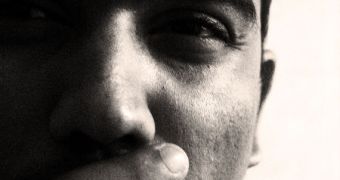In a new investigation, which has been aimed at determining what factors influence parents in deciding for or against administering the HPV vaccine to their daughters, it has been found that parental behavior plays the most significant role. Things such as the openness to alternative therapies, the amount of physical activity they themselves perform, and whether or not they smoke have been found to be the main factors dictating the parents' decisions, rather than their background or medical history, as researchers expected to find, PhysOrg reports.
“Whether or not respondents indicated that they would vaccinate their daughters against this cancer-causing virus was associated with physical activity, non-use of complementary or alternative therapies and, more surprisingly, cigarette smoking. Some prior research suggests that risky health behaviors tend to co-occur (i.e., smoking, alcohol use) and are associated with lower uptake of harm prevention strategies, such as vaccinations,” the lead researcher on the new investigation, Carolyn Y. Fang, PhD, explains. She is an associate professor in the Cancer Prevention and Control Program, at the Fox Chase Cancer Center, in Philadelphia.
“This was not the case in the current study. It may be that parents who are former or current smokers have a heightened awareness of cancer and its related risks, therefore, they may be more willing to vaccinate their daughters to prevent cancer,” the expert adds. Details of this new work appear in the February issue of the American Association for Cancer Research's respected journal Cancer Epidemiology, Biomarkers & Prevention.
Even though the HPV vaccine – which protects against cervical cancer – has been approved by the US Food and Drug Administration (FDA) since 2006, only 37 percent of females aged 13 to 17 have been given at least one of the three-shot series. Rather than being received with open arms as a possible cure for this type of cancer, the vaccine has instead been plagued with criticism from religious fanatics, who argue that it promotes a promiscuous type of lifestyle among modern youth. They have made it very clear that they would rather see their children get cancer than veer off “The Path.”

 14 DAY TRIAL //
14 DAY TRIAL //